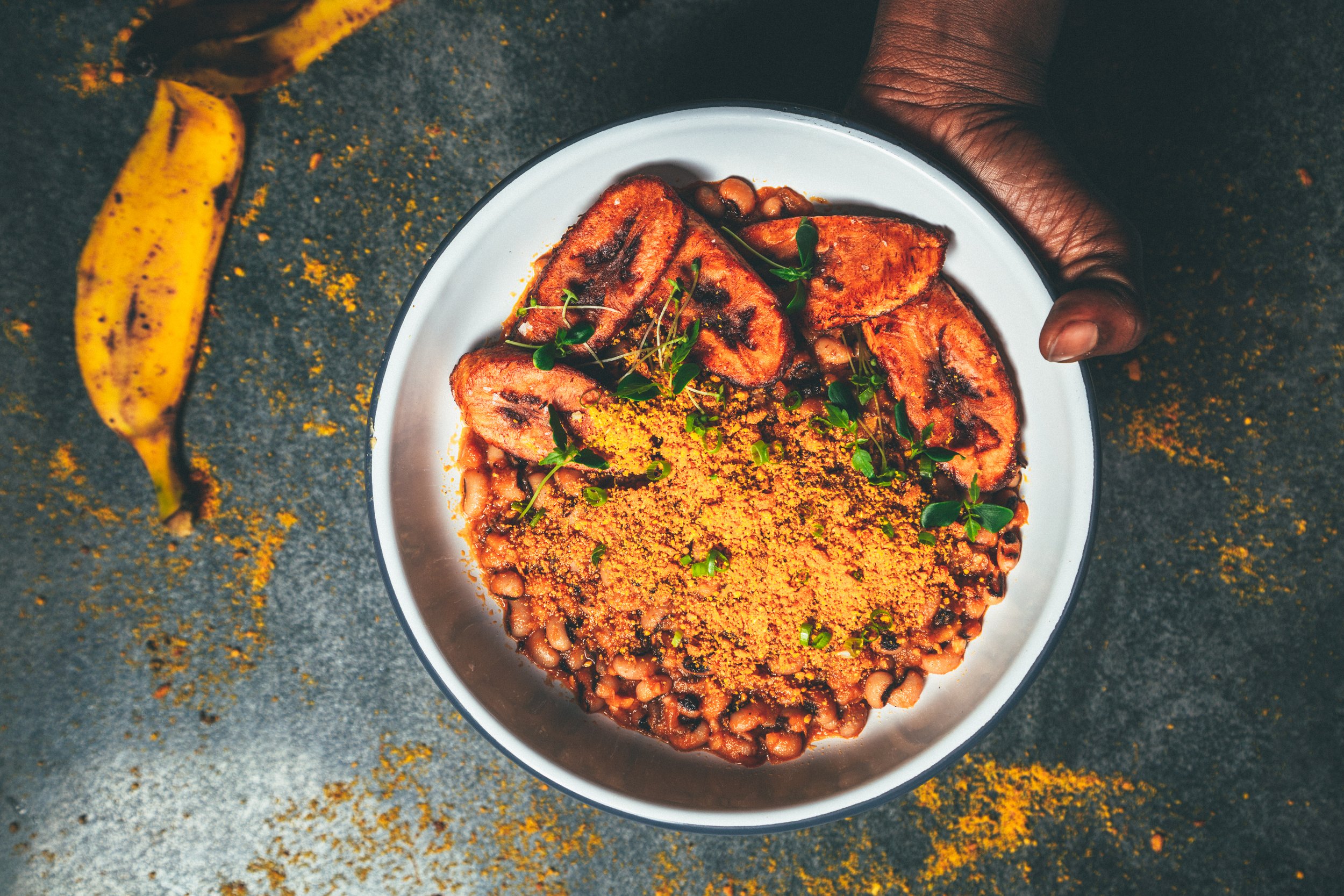Alkebulan: Chef Alexander Smalls Curates as Taste of Africa’s Cultural Revolution for the World
Photographs Courtesy of Alexander Smalls. Originally published in AphroChic magazine Issue 8, Fall 2021.
Food does so much more than just nourish our bodies. It brings is together. Not just as families, but as people. We all need it, so we all have it. And because we’re all different, there are countless ways to prepare it, serve it and take it in. Each one is attached to a culture - to a particular way of being human. Like cultures, food overlaps, weaving a fantastic tapestry of influences that shows where we are, where we’ve come from and who we’ve met along the way. If you listen, food will tell you a story. Few people know that as well as chef Alexander Smalls.
The culinary mind behind some of New York’s most celebrated restaurants including its first Afro-Asian fusion spot, The Cecil, chef Smalls is the author of several books exploring the history hidden in the food of the African diaspora. This year he’s breaking new ground again as the curator of the first ever African Dining Hall fittingly titled, Alkebulan, being presented as part of Expo 2020 Dubai. This 6 month long world’s fair-style exhibition, which began in October and will run until March 2022, brings together the best the world has to offer in business, science, technology, art and food with the concept of Connecting Minds, Creating the Future, and built around the mantra Opportunity, Mobility and Sustainability.
Alkebulan is one of the ancient names of the African continent, perhaps the only surviving term to be indigenous to the land and its people. Alternately translated as “Mother of Mankind” or “Garden of Eden,” it’s unclear if other terms may have existed among the continent’s many languages. However Alkebulan was widely used in the north and has been connected to the Ethiopians, Moors (Almoravids / Almohades) Nubians and Carthaginians among others. In its current iteration, Alkebulan is a dining hall the likes of which has never been seen, pulling from many of the continent’s major food traditions as seen through the eyes of those who are leading its culinary renaissance.
Whatever it is, the way you tell your story online can make all the difference.
“It’s really about raising the profile, and bringing into the light of day, the gifts of African food,” Smalls says of the endeavor. “I brought in some of the top chefs who are really making a name for themselves, but also leading the conversation around the evolution / revolution of the new Africa table.” The result is 22,000 square feet of unimaginable culinary delights. Among the leaders of this exciting new school are Joburg-based Congolese chef, Coco Reinartz, Senegalese pastry chef Mame Sow, Kenyan celebrity chef, Kiran Jethwa and French-Congolese, Afro-Vegan chef Glory Kabe. The complete hall boasts 10 original concepts, 3 of which were created by chef Smalls himself. The fortuitous outcome of some skillful pivoting after a collection of misfortunes brought on by the COVID-19 pandemic, the Alkebulan dining hall is that rarest of happenings: the right thing in the right place at the right time - an unprecedented opportunity to showcase Africa’s culinary culture on a world stage. For chef Smalls, it’s the next step in a journey that he started a long time ago.
“After my first restaurant I understood that, more than a chef / restaurateur, I was an activist,” he reflects. “The point was elevating and expanding the narrative of the art and food of the African Diaspora.” In bringing together so many parts of the continent and the new visions that are putting them back in conversation with food culture in the rest of the world, chef Smalls is continuing the story he began with his book, Between Harlem and Heaven - that not only did Africa never leave these conversations, it’s been there from the start. “Through slavery,” he says. “Africa is the foundation of cooking and hospitality on five continents. Since then, institutional racism has really oppressed us, our products and our value.” The stories told in the concept and menus of Alkebulan are an important step towards correcting that narrative.
Food isn’t the only way to tell our story, so the experience of Alkebulan doesn’t stop at the table. Accompanying it’s food offerings are the art of Nigerian textile designer Nike Davies - Okundaye, Ghanaian sculptor and weaving artists, Theresah Ankkomah and Rufai Zakaris, a Ghanaian artist whose figurative works are made from single use plastics found on the street. Completing the ambience is music from a variety of artists and DJs, including R&B singer, Khandice, DJ Patchoulee and steel pannist Justin Homer.
For world travelers, fans of Diaspora culture and everyone who loves to eat, Alkebulan is an amazing opportunity to get a taste of the continent, past present and a very bright future. As events like this become more common, more parts of the Diaspora will have a chance to share their part of the story and new perspectives on where Africa fits in our global food story will be formed, creating the possibility for something even greater. For Alexander Smalls, it’s likely that he sees it all already and he’s just waiting for us to catch up. In the meantime, he’s just taking it all as it comes, one step at a time. “It's just gifts,” he muses. “The universe worked it out for me to be able to do something like this with people who I have such respect for. It’s truly tremendous.”












